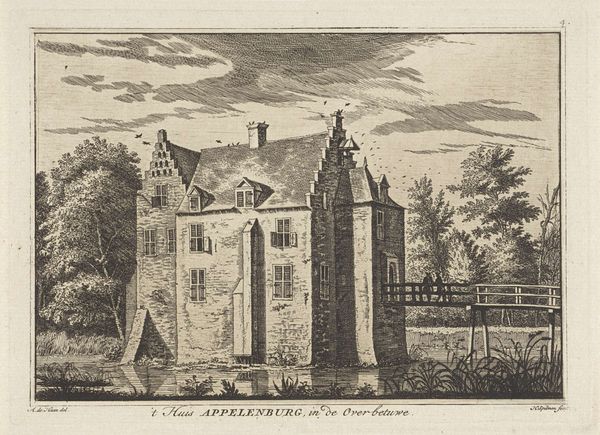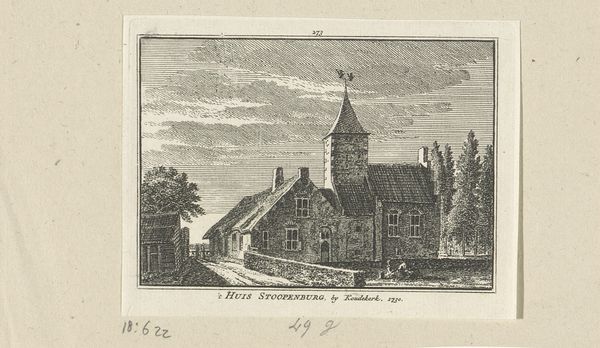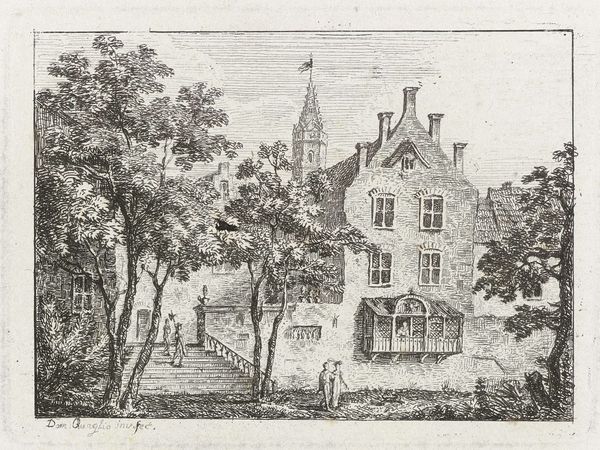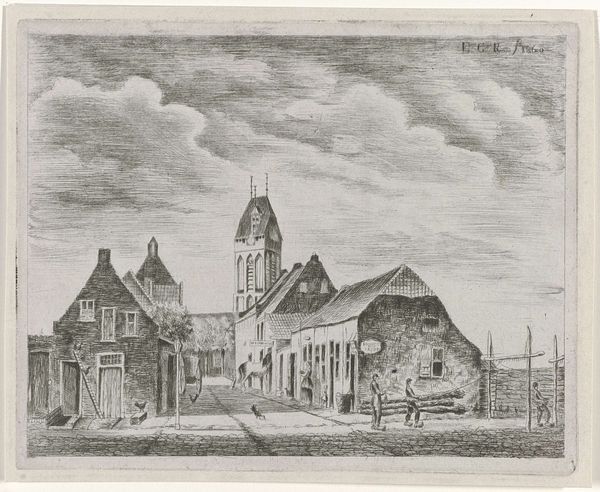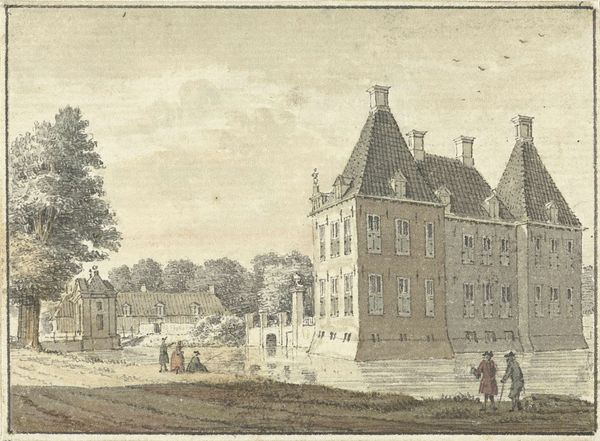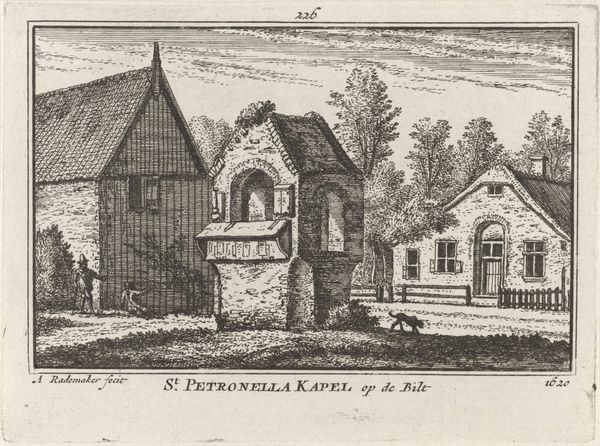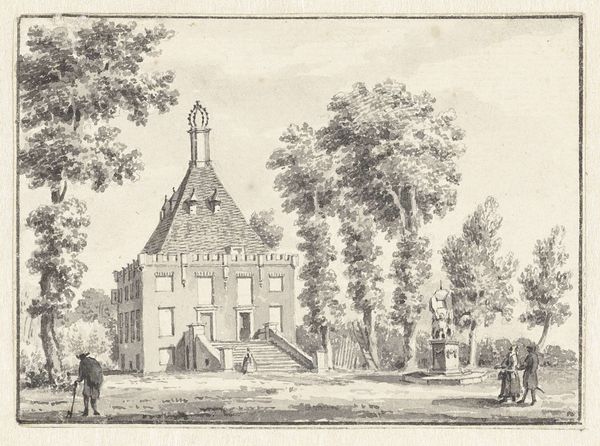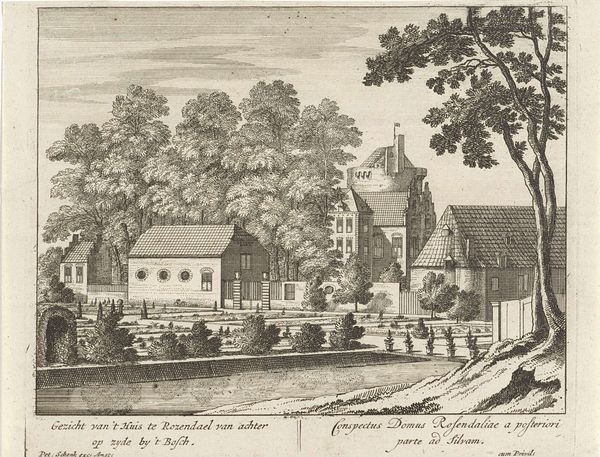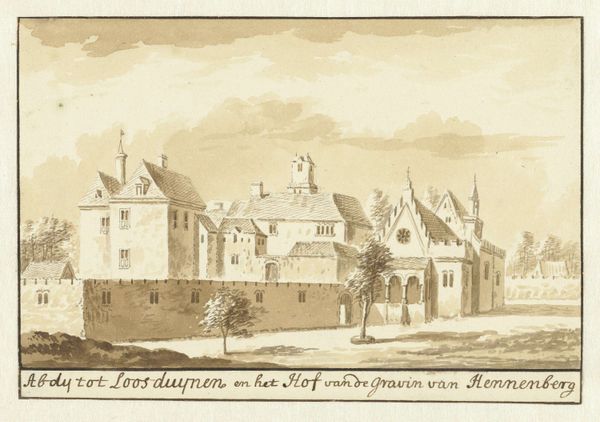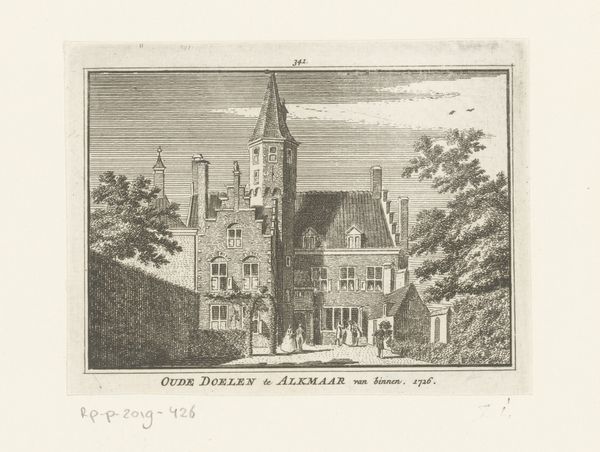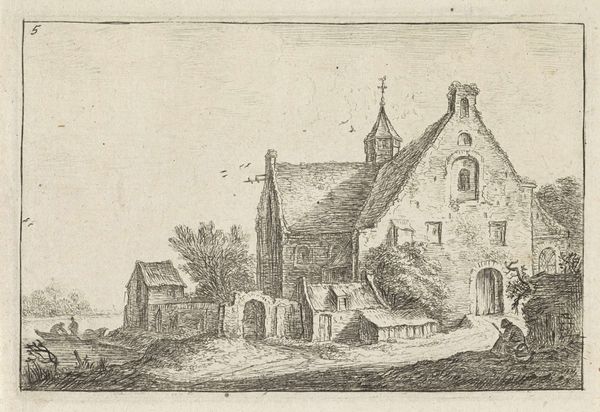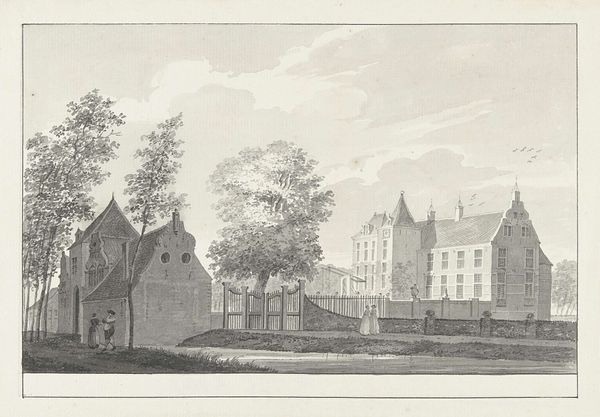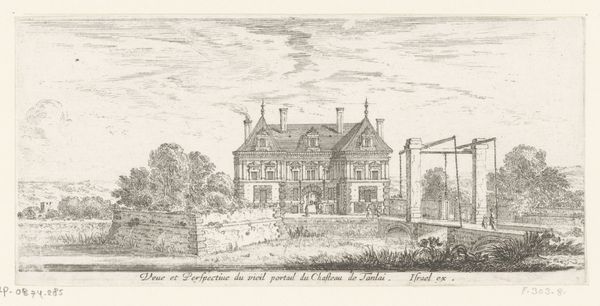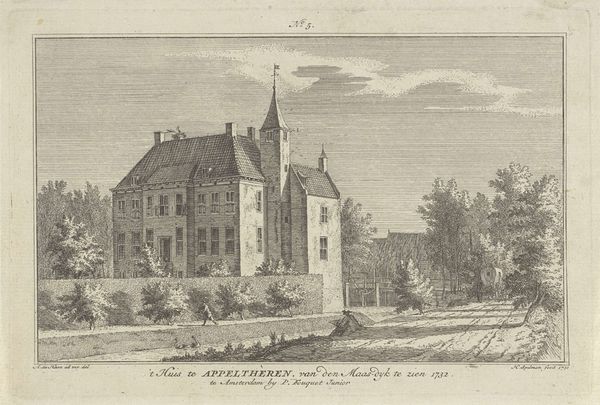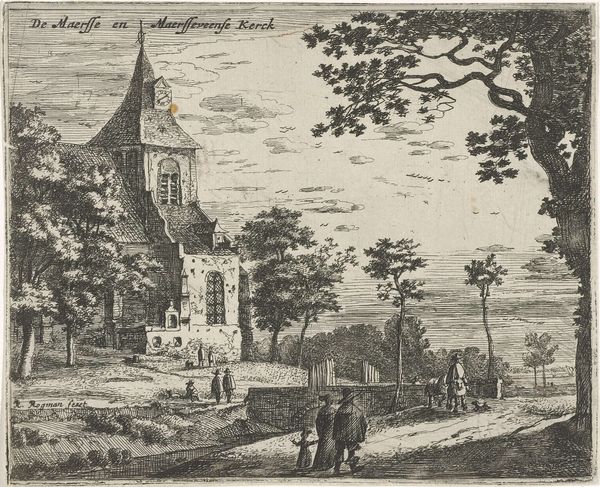
print, engraving
#
dutch-golden-age
# print
#
landscape
#
cityscape
#
engraving
Dimensions: height 80 mm, width 115 mm
Copyright: Rijks Museum: Open Domain
Abraham Rademaker made this etching of the Kamperbuitenpoort in Amersfoort in 1646. It’s an image brought to life through the precise and demanding technique of etching, a printmaking process that relies on the corrosive power of acid. The linear quality of the etching lends a sense of architectural clarity to the image, emphasizing the structure of the gate. Rademaker meticulously rendered the stone and woodwork. This wasn’t just about documenting a place; it was a demonstration of skilled labor. Think of the number of steps involved: coating a metal plate with wax, carefully drawing through it, immersing the plate in acid, and finally printing the image. Rademaker was part of a robust printmaking industry, where artisans reproduced images for a growing market. This etching, like so many others from the period, reminds us that even seemingly straightforward images are the result of considerable technical skill, painstaking labor, and commercial imperatives.
Comments
No comments
Be the first to comment and join the conversation on the ultimate creative platform.
